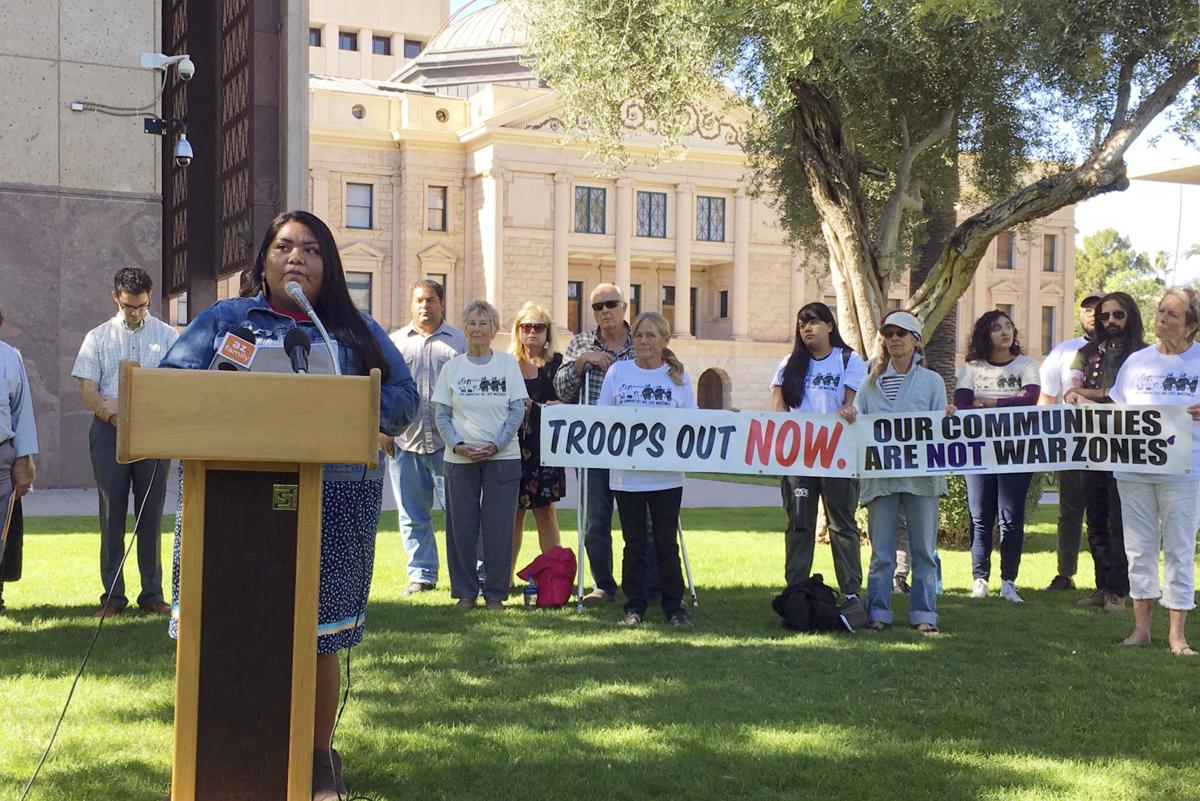PHOENIX — Amy Juan drove two hours north from her remote community on the U.S.-Mexico border in Arizona to rally against the deployment of troops there.
She's one of many residents of the Southwest who oppose and are speaking out against President Donald Trump's deployment of over 5,000 military troops to the border to fend off a slow-moving caravan of Central American migrants headed to the U.S.
In El Paso, Texas, a march is planned to protest the deployment this weekend. In Laredo, the city's mayor released a statement referring to the deployment as "false efforts" that will "harm morale and damage the economy of our region."
"Even though our communities are all very different and diverse, we all experience the same thing, which are the effects of militarization at the border," said Juan, who was one of several speakers at a news conference in Phoenix on Thursday. "Having an increased presence of military is scary, you know. It's scary."
Juan is a member of the Tohono O'odham Nation, which sits on about 75 miles along the international border. Residents of the reservation have long had a complicated relationship with the U.S. Border Patrol, and its leadership has been vocal about its opposition to the president's plans for a border wall.
"I find the fact that the military is being deployed absolutely terrifying. The amount of militarization that we already experience on a daily basis and that we are currently living under is like living in a waking nightmare," said Eva Lewis, a resident of the small town of Arivaca just north of the U.S.-Mexico border.
Many residents of Arivaca have spent years battling the Border Patrol's checkpoints, which require everyone who cross them to stop and declare whether they are citizens. Trips to school or the grocery store require passing through checkpoints, and many residents say that agents discriminate against Latinos in the area, a claim the agency denies.
In Nogales, Arizona, which shares a name with its neighbor to the south, residents said they were distressed, confused and shocked when the military showed up on election day to install barbed wire on a border fence, according to the Nogales International newspaper.
As of Thursday, there are over 5,600 troops deployed at the border. There are 2,800 in Texas, while 1,500 are in Arizona and another 1,300 are in California.
The military expects to have most of the over 7,000 troops planned for the mission deployed by Monday. A spokesperson for the Department of Defense could not be reached Thursday.
But not everyone opposes the military presence.
Jim Chilton, an Arizona border rancher and staunch Trump supporter, said in a news release to the AP this week that he looks forward to the arrival of more troops. Chilton said the 25 miles of international border in Arivaca is poorly secured and actively sees drug smuggling and human trafficking.
"The lack of access and infrastructure, cartel scout presence, and rough terrain and inefficient 'defense in depth' strategy creates a de facto 'no man's land' in which border ranchers live and work," Chilton said.
Despite rhetoric about the Central American migrant caravan, illegal immigration to the U.S. is at historic lows, with only a fraction of arrests made by the Border Patrol — and twice the number of agents — made this year compared with 2000, at the height of illegal activity.





